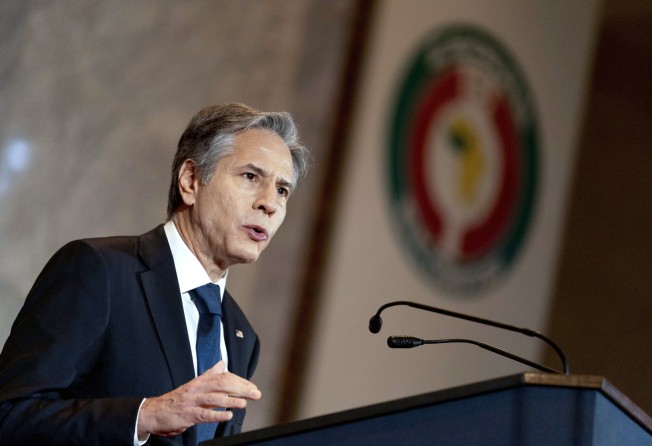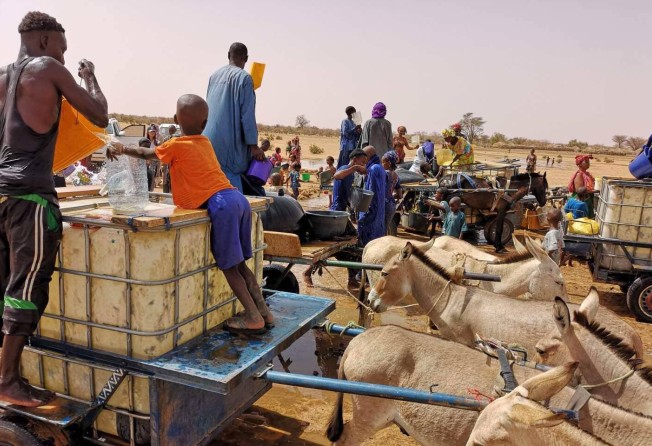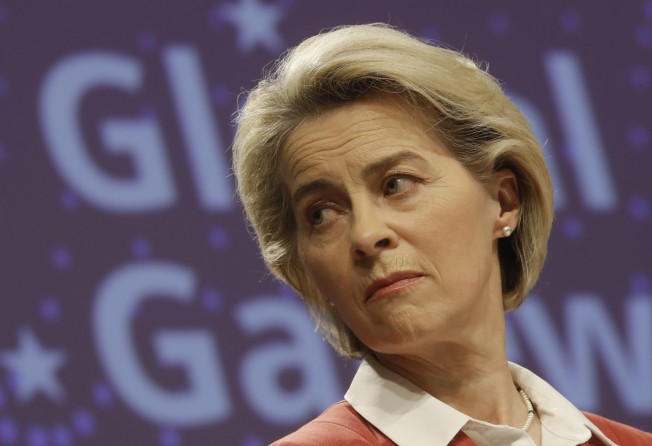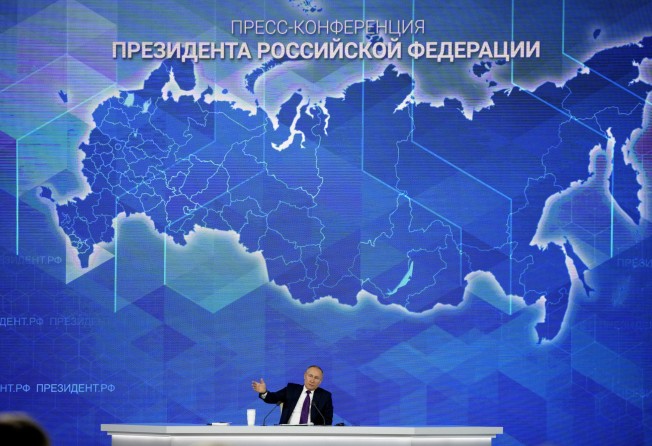
In the new ‘Scramble for Africa’, nations have much to gain – but they can’t ignore the risks
- It is to Africa’s advantage that the jockeying for influence between China, the US, EU and other regional powers brings critical investment for development
- However, African leaders are also wary of being caught in the crossfire of geoeconomic competition

The last two months of 2021 have clearly indicated that Africa will be centre stage for geoeconomic competition by major economic blocs next year.
The Forum on China-Africa Cooperation was held in Dakar, Senegal, in late November, with the Chinese government pledging US$40 billion in support of African economies. That same month, US Secretary of State Antony Blinken visited Kenya, Nigeria and Senegal, during which he announced that President Joe Biden will host a summit with African leaders in 2022.
On December 19, a number of African leaders, led by African Union chairman Félix Tshisekedi of the Democratic Republic of the Congo, met in Brussels to prepare for the EU-African Union summit early next year, where a number of investments are expected to be announced.
A 21st-century version of the “Scramble for Africa” is taking place. In 1884, Western European powers held a conference in Berlin, which marked the starting point of the Scramble for Africa, or the occupation, division and colonisation of most of the continent.

The motivation for this new scramble for Africa is the same: hunger for the continent’s massive natural resources. The only difference is that, today, it is happening with the consent of the continent’s leaders.
The Western world lost interest in African countries when they attained independence in the 1960s and virtually abandoned the continent. At the beginning of this century, China took advantage of the vacuum and started making inroads.
The first country to openly react to Chinese influence in Africa was the US. There has been a growing realisation in Washington that Africa represents important opportunities in trade and investment.
“The United States firmly believes that it’s time to stop treating Africa as a subject of geopolitics and start treating it as the major geopolitical player it has become,” Blinken said in Nigeria during his recent visit, adding that the US sees African countries as equal partners.
The European Union has also joined the race for African influence. To counter Chinese influence, the EU this month announced a plan to invest €300 billion (US$340 billion) in global infrastructure, which European Commission president Ursula von der Leyen boasted would be better than China’s Belt and Road Initiative on account of the EU’s priorities of a green economy and digital technology.
“Countries [had] their experience with the Chinese investments and they need better and different offers,” she said. “We want to show that a democratic, value-driven approach can deliver on the most pressing challenges.”

India is another country that has been quietly making economic inroads into Africa. The country is now Africa’s third-largest trading partner, and has in recent years added to its diplomatic missions on the continent.
India believes it has a competitive advantage over China due to its shared colonial past, the English language and the fact that the Indian diaspora in Africa numbers over 3 million. New Delhi also argues that unlike China, which tends to import workers from home, Indian projects in Africa emphasise the use of the local labour force.
Moscow, too, has entered the fray. In 2019, Russia hosted 43 African heads of state at the Russia-Africa Summit in Sochi, where several agreements were signed. “We are not going to participate in a new ‘repartition’ of the continent’s wealth,” President Vladimir Putin said at the summit. “Rather, we are ready to engage in competition for cooperation with Africa. We have a lot to offer our African friends.”
Already, Russian state-owned energy companies Gazprom, Rostec and Rosatom are active in Africa, with key investments in the oil, gas and nuclear sectors in Algeria, Egypt, Uganda and Angola.

Turkey is also expanding its footprint on the continent. The increase of the number of its embassies in Africa, from 12 in 2009 to 43 today, is a reflection of Turkish President Recep Tayyip Erdogan’s ambitions on the continent. According to Nikkei Asia, since he came to power, Erdogan has visited 28 African countries 38 times in total, making him the global leader who has visited the continent most frequently.
This diplomatic push has led to a huge increase in economic ties between Ankara and African nations. Over the past 20 years, trade between Turkey and Africa has grown from US$5.4 billion to US$25.3 billion last year.
This competition for influence should generally be welcomed by African countries as it provides them with more choices. It is an opportunity for Africa to fast-track its development by leveraging its resources and its market of 1.2 billion people, most of them young.
African Union officials have been cautious on the new “invasion”. AU commissioner for infrastructure and energy Amani Abou-Zeid said last year: “Africa’s focus is about securing financial access to fund development for its fast-growing population. We need serious partners; we need people who can deliver.”
More to the point, as her boss Moussa Mahamat, chairman of the African Union commission, once said: “Africa refuses to be the theatre for the playing out of rivalries between Chinese, Americans or Europeans.”
Mwansa Chalwe Snr is a Zambian chartered accountant, an independent financial commentator and analyst. He is the author of a new book, China-West Battleground in Africa: Debt ridden Zambia. [email protected]